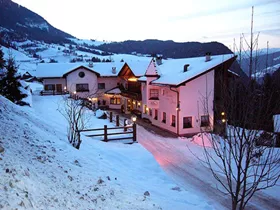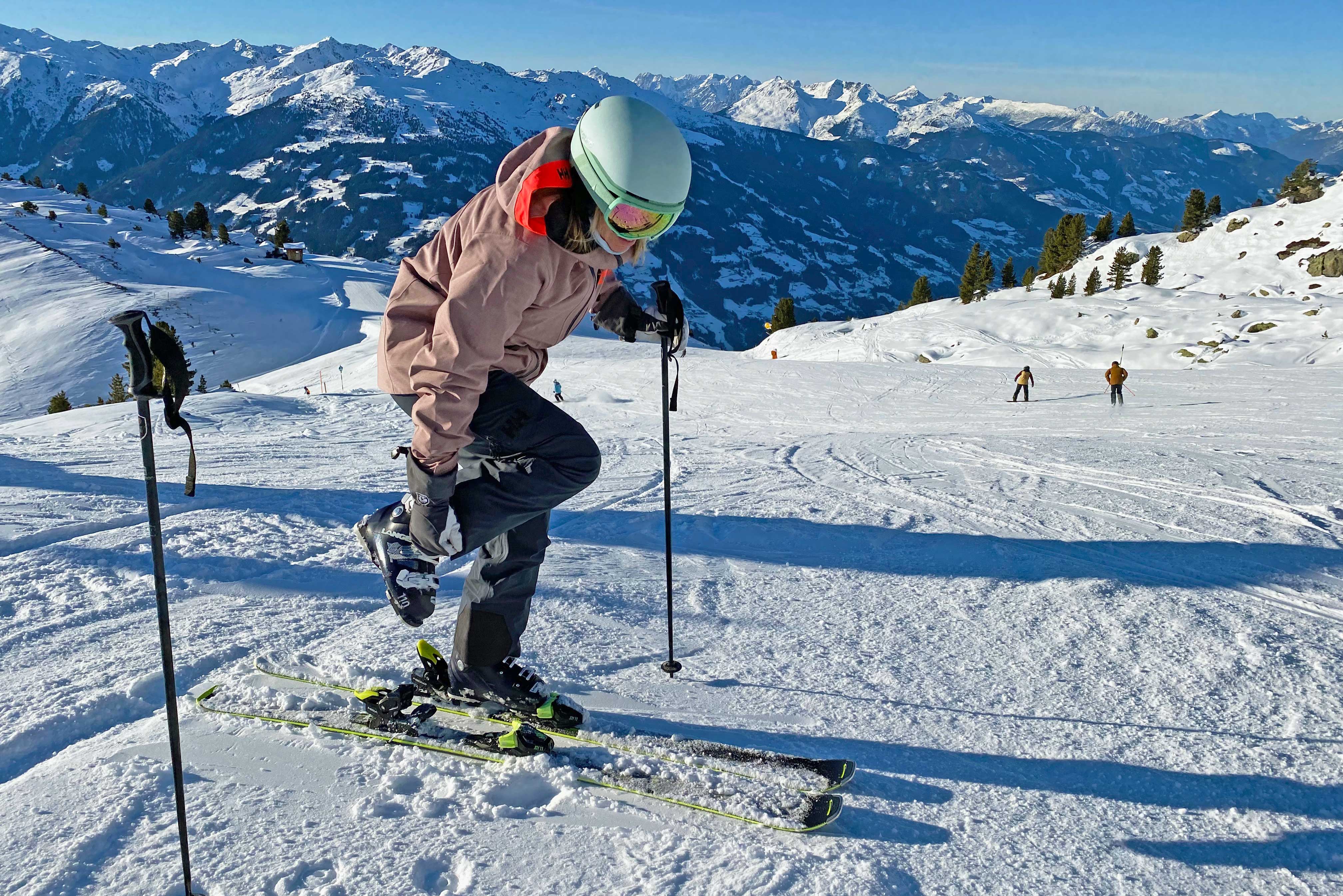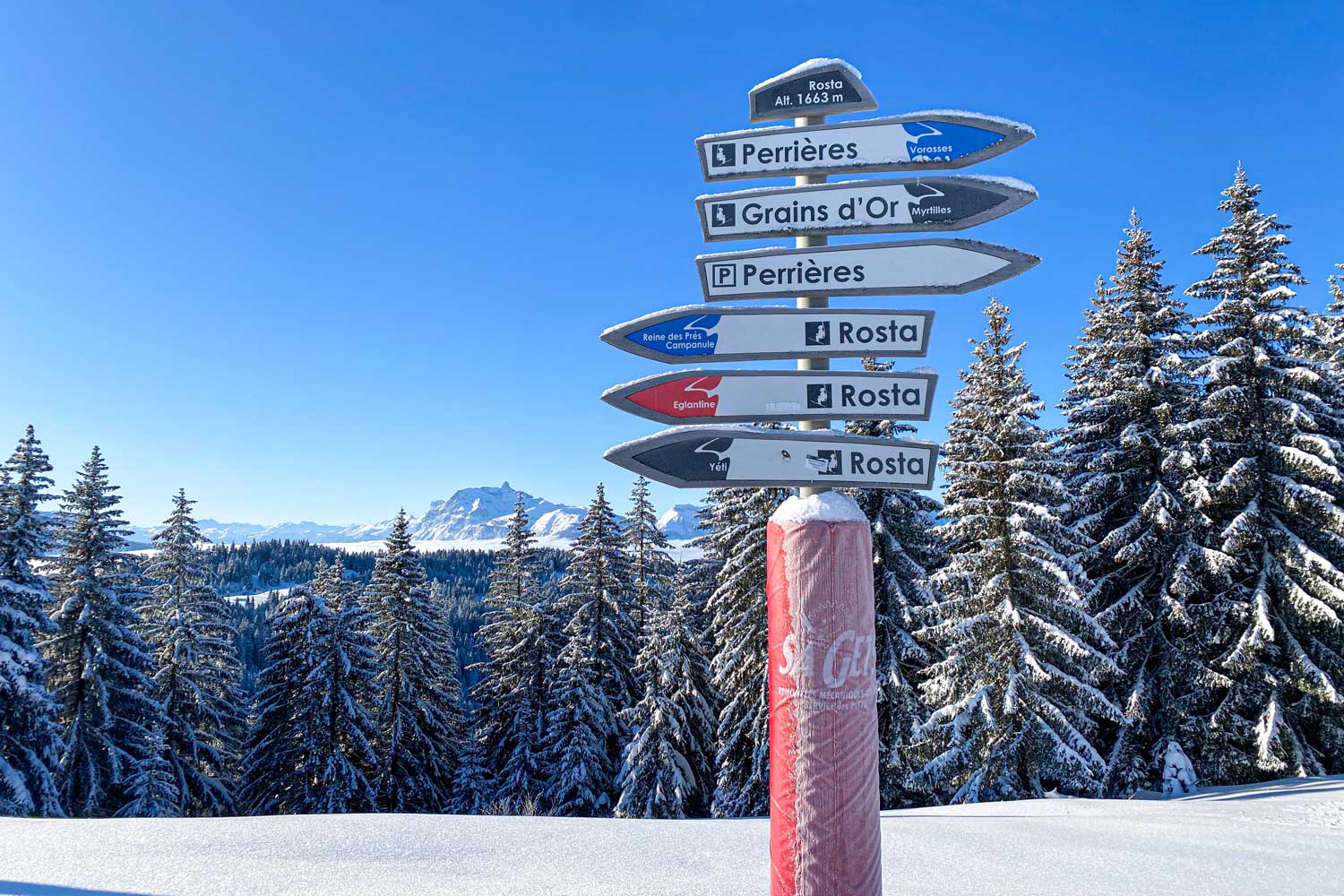
Don't forget travel insurance! © Ana Pacheco
Choosing the right travel insurance policy for your winter sports holiday can be a daunting task. With so many providers and such a difference in price tags, it’s tempting to just give in and get the cheapest one. But an extra hundred pounds now could save you thousands of pounds and a lot of hassle down the road. Skiing and snowboarding are risky sports and travel insurance companies often make you pay a premium for coverage. While the EHIC card goes partway towards covering your costs, it’s no substitute for proper winter sports travel insurance. Here’s how to pick the policy that’s right for you.
Understand the limitations of your EHIC on a winter sports holiday
The (European Health Insurance Card) EHIC is available for free and entitles you to the same coverage available to residents of that country through the state-provided healthcare. It covers you in the EEA as well as Switzerland. Several other countries, such as Australia and New Zealand, also have reciprocal healthcare agreements with the UK. You must apply for the EHIC before your holiday, and every member of your group must have their own. The EHIC does not cover the cost of bringing you down off the mountain, or for repatriating you to a UK hospital. It’s also dependent on the laws of the country you’re visiting, meaning some countries may still require you to pay a portion of your healthcare costs. *After the Brexit, your EHIC will most likely no longer be valid.*
Ensure your coverage is valid in the country where you plan to ski or snowboard
When planning a ski holiday in Canada, America or other overseas countries, you’ll probably have to purchase North America travel insurance or worldwide travel insurance. Generally, EU-wide winter sports travel insurance will cover you in most of the Alpine ski resorts. However, keep in mind that Andorra is not part of the EEA. Don’t be like my friend who had to take a 2-hour bus back to Barcelona with a concussion and nerve damage in her face because she couldn’t afford to go to the hospital in Andorra!
Purchase a travel insurance policy that specifically states you’re covered for winter sports
The bulk of travel insurance providers know that winter sports are risky and they often don’t cover your expenses when skiing, snowboarding, etc. It’s essential to double-check that your travel insurance policy covers you while you’re doing winter sports. The policy might have other conditions, too – mine, for example, is a multi-trip policy valid for trips of up to 45 days each time, but only a total of 21 days of winter sports a year.
Think twice before trying that double-black run in North America if you don't have insurance!
Consider buying multi-trip travel insurance
A single-trip winter sports policy is usually cheap and easy, and the perfect solution for a short ski holiday. However, if you’re planning on going on more than one ski holiday this year, or even if you’re planning on leaving Europe more than once, it might be worth investing in multi-trip travel insurance, which will usually come out cheaper per trip than if you had to buy each trip separately. Sometimes your pre-existing multi-trip policy will have the option to tack on winter sports coverage for a specific trip.
Check the coverage and excess amounts
Coverage levels can vary enormously, even with the same insurance provider. Since the cost of an injury while skiing or snowboarding can be astronomical, don’t cheap out on the coverage level. This applies both to your own injury and to your personal liability in the event that you crash into another skier or snowboarder thanks to your terrible skiing skills. Another thing to consider is whether you want to pay more up front to reduce your excess, which is the amount you have to cover yourself in the event of a claim. It’s a gamble and I usually adjust my excess according to my chances of getting hurt... but you never know for sure.
Read the fine print
Once you’ve made sure your travel insurance policy specifically covers you for winter sports, check for other loopholes the insurance company can use to wriggle out of paying your medical bills. Does it cover you for off-piste skiing? Out-of-bounds skiing? Low-altitude skiing? Heliskiing? Skiing without a helmet? Skiing while drunk? Breaking the rules of a ski resort? Participating in a race? Doing mad jumps in a terrain park? Non-skiing activities like paragliding? Although we recommend reading the entire terms and conditions, it’s most important to pay attention to the winter sport parts – search for keywords like “snow” or “ski” or “snowboard” or “winter sports” to find the relevant sections. Also check if the travel insurance policy covers repatriation to a British hospital if necessary.
Travel insurance will help your peace of mind when you're mired in deep powder snow! © Ana Pacheco
Be aware that you won’t always be covered
Due to age, pre-existing medical conditions or other reasons, it won’t always be possible to find an insurance provider who will cover you for winter sports. Be aware as well that search and rescue costs are not usually covered by winter sports travel insurance policies. Coverage for trip cancellation in the event that a loved one is sick or dying is not a given, either. Think about what situations might arise in your life and double-check your policy before you buy it to make sure you’re covered.
Check if the policy includes trip cancellation insurance
Most insurance providers will offer the option to cover the costs of trip cancellation due to unexpected circumstances. Some providers also offer insurance in the event that your equipment is stolen or even if the ski area is closed due to bad weather. These options are nice to have so keep an eye out for them as well, bearing in mind that the criteria for “closed due to bad weather” may be very strictly defined in the travel insurance policy. For example, even though your ski holiday was rubbish, you might not get covered if the nursery slopes were open. My insurance policy only covers me for trip cancellation during high season, and it waives the coverage if I book within 14 days of arriving at the ski resort and the weather forecast was poor. Likewise, if you’re careless with your equipment, the travel insurance provider may deny your claim. Lastly, check that you’re still covered if you book your holiday on your own rather than through a holiday provider.
Skiing with the family
Some travel insurance providers cover underage children when they are accompanied by the policy holder. But be aware that this coverage often doesn’t extend to when the children are skiing by themselves – for example, if they are enrolled in ski or snowboard lessons.
Are your children covered while skiing in ski school? © Mayrhofen
Read the reviews
Insurance company reviews are some of the most fun to read, because inevitably you will get loads of interesting stories about people’s accidents. Does that make me sadistic? Sorry. But they’re also a good way to get a feel for each insurance company – of course, you should take the reviews with a grain of salt and compare not one or two, but many, to get a proper idea of what the claims process is like with each company. Your winter sports holiday will go a lot more smoothly if you don’t have to spend hours on the phone arguing with a pedantic insurance rep.
Keep your insurance policy in a safe and accessible place
Once you’ve purchased your travel insurance, don’t just save it to My Documents and leave it there to rot. In the event of an emergency, many travel insurance providers require you to check with them first before undergoing any big medical procedures if you want to claim for coverage. Before your holiday, give a copy of your policy details to a travel companion and keep a copy handy yourself. I usually have a card with all my information on it that I carry with me while skiing. This includes my EHIC number, my travel insurance policy number and the emergency hotline of my travel insurance provider.
Keep your medical bills for proof
In the event of an accident, you should keep every and any shred of evidence you have so you can present it when making your claim. This applies to hospital bills, confirmation of accommodation/lessons/lift passes/rentals that you’ve had to cancel, death certificates in the event you need to return home to for the death of a close family member, etc.
With the right winter sports travel insurance policy, you can ski worry-free
The staggering costs of medical bills after a ski or snowboard accident make it essential to purchase a good winter sports travel insurance plan, whether you’re skiing in Europe, Japan or North America. If you plan ahead and shell out a little bit of money now, you won’t have to worry about a thing when you have an accident on the slopes – oh, except healing, of course.
Don't forget travel insurance! © Ana Pacheco
Choosing the right travel insurance policy for your winter sports holiday can be a daunting task. With so many providers and such a difference in price tags, it’s tempting to just give in and get the cheapest one. But an extra hundred pounds now could save you thousands of pounds and a lot of hassle down the road. Skiing and snowboarding are risky sports and travel insurance companies often make you pay a premium for coverage. While the EHIC card goes partway towards covering your costs, it’s no substitute for proper winter sports travel insurance. Here’s how to pick the policy that’s right for you.
Understand the limitations of your EHIC on a winter sports holiday
The (European Health Insurance Card) EHIC is available for free and entitles you to the same coverage available to residents of that country through the state-provided healthcare. It covers you in the EEA as well as Switzerland. Several other countries, such as Australia and New Zealand, also have reciprocal healthcare agreements with the UK. You must apply for the EHIC before your holiday, and every member of your group must have their own. The EHIC does not cover the cost of bringing you down off the mountain, or for repatriating you to a UK hospital. It’s also dependent on the laws of the country you’re visiting, meaning some countries may still require you to pay a portion of your healthcare costs. *After the Brexit, your EHIC will most likely no longer be valid.*
Ensure your coverage is valid in the country where you plan to ski or snowboard
When planning a ski holiday in Canada, America or other overseas countries, you’ll probably have to purchase North America travel insurance or worldwide travel insurance. Generally, EU-wide winter sports travel insurance will cover you in most of the Alpine ski resorts. However, keep in mind that Andorra is not part of the EEA. Don’t be like my friend who had to take a 2-hour bus back to Barcelona with a concussion and nerve damage in her face because she couldn’t afford to go to the hospital in Andorra!
Purchase a travel insurance policy that specifically states you’re covered for winter sports
The bulk of travel insurance providers know that winter sports are risky and they often don’t cover your expenses when skiing, snowboarding, etc. It’s essential to double-check that your travel insurance policy covers you while you’re doing winter sports. The policy might have other conditions, too – mine, for example, is a multi-trip policy valid for trips of up to 45 days each time, but only a total of 21 days of winter sports a year.
Think twice before trying that double-black run in North America if you don't have insurance!
Consider buying multi-trip travel insurance
A single-trip winter sports policy is usually cheap and easy, and the perfect solution for a short ski holiday. However, if you’re planning on going on more than one ski holiday this year, or even if you’re planning on leaving Europe more than once, it might be worth investing in multi-trip travel insurance, which will usually come out cheaper per trip than if you had to buy each trip separately. Sometimes your pre-existing multi-trip policy will have the option to tack on winter sports coverage for a specific trip.
Check the coverage and excess amounts
Coverage levels can vary enormously, even with the same insurance provider. Since the cost of an injury while skiing or snowboarding can be astronomical, don’t cheap out on the coverage level. This applies both to your own injury and to your personal liability in the event that you crash into another skier or snowboarder thanks to your terrible skiing skills. Another thing to consider is whether you want to pay more up front to reduce your excess, which is the amount you have to cover yourself in the event of a claim. It’s a gamble and I usually adjust my excess according to my chances of getting hurt... but you never know for sure.
Read the fine print
Once you’ve made sure your travel insurance policy specifically covers you for winter sports, check for other loopholes the insurance company can use to wriggle out of paying your medical bills. Does it cover you for off-piste skiing? Out-of-bounds skiing? Low-altitude skiing? Heliskiing? Skiing without a helmet? Skiing while drunk? Breaking the rules of a ski resort? Participating in a race? Doing mad jumps in a terrain park? Non-skiing activities like paragliding? Although we recommend reading the entire terms and conditions, it’s most important to pay attention to the winter sport parts – search for keywords like “snow” or “ski” or “snowboard” or “winter sports” to find the relevant sections. Also check if the travel insurance policy covers repatriation to a British hospital if necessary.
Travel insurance will help your peace of mind when you're mired in deep powder snow! © Ana Pacheco
Be aware that you won’t always be covered
Due to age, pre-existing medical conditions or other reasons, it won’t always be possible to find an insurance provider who will cover you for winter sports. Be aware as well that search and rescue costs are not usually covered by winter sports travel insurance policies. Coverage for trip cancellation in the event that a loved one is sick or dying is not a given, either. Think about what situations might arise in your life and double-check your policy before you buy it to make sure you’re covered.
Check if the policy includes trip cancellation insurance
Most insurance providers will offer the option to cover the costs of trip cancellation due to unexpected circumstances. Some providers also offer insurance in the event that your equipment is stolen or even if the ski area is closed due to bad weather. These options are nice to have so keep an eye out for them as well, bearing in mind that the criteria for “closed due to bad weather” may be very strictly defined in the travel insurance policy. For example, even though your ski holiday was rubbish, you might not get covered if the nursery slopes were open. My insurance policy only covers me for trip cancellation during high season, and it waives the coverage if I book within 14 days of arriving at the ski resort and the weather forecast was poor. Likewise, if you’re careless with your equipment, the travel insurance provider may deny your claim. Lastly, check that you’re still covered if you book your holiday on your own rather than through a holiday provider.
Skiing with the family
Some travel insurance providers cover underage children when they are accompanied by the policy holder. But be aware that this coverage often doesn’t extend to when the children are skiing by themselves – for example, if they are enrolled in ski or snowboard lessons.
Are your children covered while skiing in ski school? © Mayrhofen
Read the reviews
Insurance company reviews are some of the most fun to read, because inevitably you will get loads of interesting stories about people’s accidents. Does that make me sadistic? Sorry. But they’re also a good way to get a feel for each insurance company – of course, you should take the reviews with a grain of salt and compare not one or two, but many, to get a proper idea of what the claims process is like with each company. Your winter sports holiday will go a lot more smoothly if you don’t have to spend hours on the phone arguing with a pedantic insurance rep.
Keep your insurance policy in a safe and accessible place
Once you’ve purchased your travel insurance, don’t just save it to My Documents and leave it there to rot. In the event of an emergency, many travel insurance providers require you to check with them first before undergoing any big medical procedures if you want to claim for coverage. Before your holiday, give a copy of your policy details to a travel companion and keep a copy handy yourself. I usually have a card with all my information on it that I carry with me while skiing. This includes my EHIC number, my travel insurance policy number and the emergency hotline of my travel insurance provider.
Keep your medical bills for proof
In the event of an accident, you should keep every and any shred of evidence you have so you can present it when making your claim. This applies to hospital bills, confirmation of accommodation/lessons/lift passes/rentals that you’ve had to cancel, death certificates in the event you need to return home to for the death of a close family member, etc.
With the right winter sports travel insurance policy, you can ski worry-free
The staggering costs of medical bills after a ski or snowboard accident make it essential to purchase a good winter sports travel insurance plan, whether you’re skiing in Europe, Japan or North America. If you plan ahead and shell out a little bit of money now, you won’t have to worry about a thing when you have an accident on the slopes – oh, except healing, of course.















